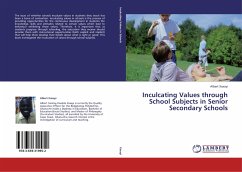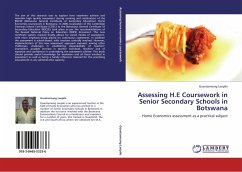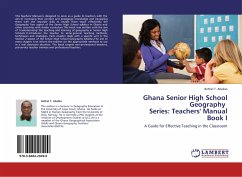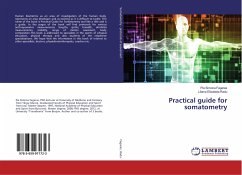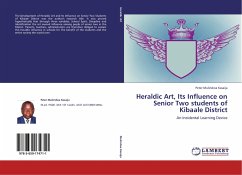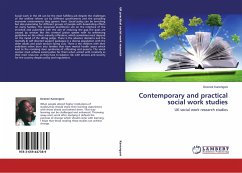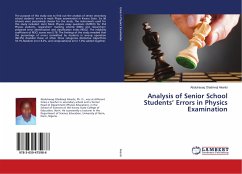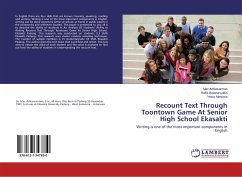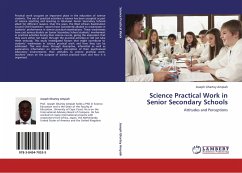
Science Practical Work in Senior Secondary Schools
Attitudes and Perceptions
Versandkostenfrei!
Versandfertig in 6-10 Tagen
45,99 €
inkl. MwSt.

PAYBACK Punkte
23 °P sammeln!
Practical work occupies an important place in the education of science students. The use of practical activities in science has been accepted as part of science teaching and learning in Ghanaian Senior Secondary Schools albeit for different reasons. Over the years, the West African Examination Council Chief Examiners reports have consistently alluded to weaknesses in students performance in science practical examinations. These weaknesses have cast serious doubts on Senior Secondary School students involvement in practical activities during their science course, giving the impression that they...
Practical work occupies an important place in the education of science students. The use of practical activities in science has been accepted as part of science teaching and learning in Ghanaian Senior Secondary Schools albeit for different reasons. Over the years, the West African Examination Council Chief Examiners reports have consistently alluded to weaknesses in students performance in science practical examinations. These weaknesses have cast serious doubts on Senior Secondary School students involvement in practical activities during their science course, giving the impression that they were either not taken through the practical activities or did not take them seriously. This study investigated factors that might contribute to students weaknesses in science practical work and how they can be addressed. This was done through descriptive, inferential as well as explanatory information on students perception of their psychosocial laboratory environments; their attitudes to science practical work; teachers views on the purpose of science practical work and how it is organised.



